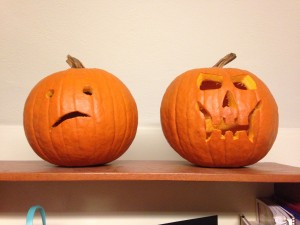Last Wednesday, I attended the Becker/Rose talk given by faculty members of the Cornell Food and Brand Lab, where I learned a great deal about the thought processes people have when making food choices. Being a very indecisive human being, I found it fascinating to learn just how much thought actually goes into each decision we make. We make thousands of decisions a day, and if I only struggle with one or two, I’d say that’s a pretty good track record…
While I found everything to be incredibly interesting (and validating), I couldn’t help but wonder whether such research was doing more harm than good. No doubt, we’re facing an obesity epidemic, and it’s important that we understand our thoughts around food if we want to change that. We must remember, however, that we are also facing an epidemic of eating disorders. Lying on the complete opposite end of the spectrum, ED’s stem from a desire for control which manifests itself as an obsession with food. For those suffering from ED’s, it is often a case of overthinking, and such research merely encourages that overly-analytical behavior. The speakers talked about how they use the results of their studies to influence consumers, but I think they would do well to look further into the effects of their work on those with eating disorders.
I know we can’t realistically shelter everyone from each new study comes out… But I do think we can be more careful about how we present the information.


